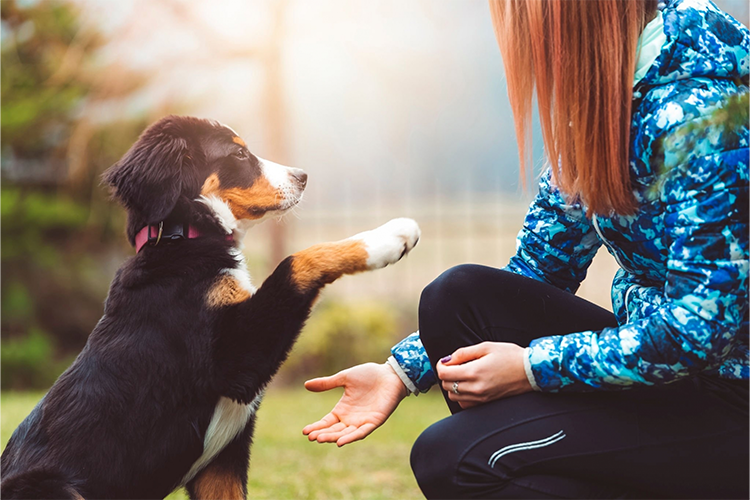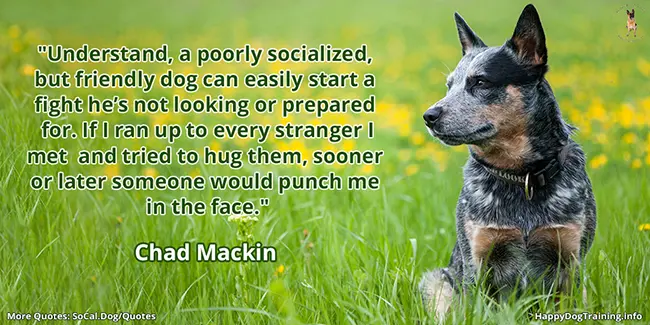Necessary Canine Training Tips for a Confident and mannerly Family pet
Effective canine training is a basic element of cultivating a mannerly and certain family pet. Developing a regular regimen, using positive reinforcement techniques, and prioritizing early socialization are crucial elements that add to a canine's total actions and personality. In addition, mastering fundamental commands and immediately attending to any type of behavioral problems can substantially improve the bond between you and your canine buddy. The subtleties of these training methods may not be immediately apparent, leading many pet dog owners to ignore important elements that can make all the difference in their pet dog's advancement. What might these necessary suggestions require?
Establish a Regular Regimen
Establishing a consistent regimen is critical for efficient pet training. A well-structured schedule provides dogs with a complacency and predictability, which can dramatically boost their understanding process. By establishing particular times for training sessions, feeding, walks, and play, you create a structure within which your canine can thrive.

Additionally, a routine aids in addressing behavior concerns. When a pet dog understands when and where to expect numerous tasks, it minimizes stress and anxiety and promotes a calm disposition. Normal workout and mental stimulation should additionally be consisted of in the routine, as they are vital for a canine's health.
Usage Positive Support
Positive support is a necessary element of reliable pet dog training, promoting a strong bond in between the trainer and the pet while urging desired actions. This training technique involves rewarding your pet with treats, appreciation, or playtime instantly after they do a wanted activity, such as resting or coming when called. The basic concept is that actions adhered to by positive results are likely to be duplicated.
To carry out favorable reinforcement properly, timing is crucial. Benefits must be offered promptly to aid your canine make the link between the behavior and the reward. Uniformity likewise plays an important duty; utilize the exact same commands and incentives to strengthen discovering. For instance, if you award your canine for sitting, guarantee you make use of the very same verbal hint each time.
In addition, differ the incentives to keep your pet dog involved. Often, a reward may be suitable, while various other times, verbal appreciation or a favorite toy could be much more efficient. This method not only improves discovering however additionally helps in building confidence in your pet. Eventually, positive reinforcement promotes a joyful training experience, leading to a well-behaved pet dog and a more powerful connection between the family pet and owner. Dog training.

Mingle Your Pet Dog Early
A dog's ability to adapt to different settings and situations frequently hinges on early socializing. This essential developing stage typically takes place between 3 and fourteen weeks of age, throughout which puppies are particularly responsive to brand-new experiences. By subjecting your pet to diverse people, pets, seems, and settings during this moment, you can help promote a well-adjusted and certain adult.
Socializing helps protect against behavioral problems such as concern, aggressiveness, and extreme barking. When a dog is accustomed to different stimuli, it is less likely to react negatively out of worry or this hyperlink unpredictability. Engaging with various other canines in controlled settings, such as young puppy classes or playdates, can additionally instruct important communication skills and suitable play behavior.
Additionally, introducing your dog to numerous settings-- like parks, active streets, and pet-friendly stores-- can boost its comfort and flexibility in brand-new situations. Constantly make sure that these encounters are safe and delightful, and check your dog's responses to assist further communications.
Instruct Fundamental Commands
Building on the structure of early socializing, mentor standard commands is a crucial aspect of pet dog training that enhances interaction between you and your pet. Fundamental commands such as "rest," "remain," "come," and "down" not just promote excellent behavior but likewise guarantee your canine's safety and security in different situations.
To successfully teach these commands, start in a silent atmosphere without diversions. Usage positive reinforcement strategies, such as treats or praise, to compensate your dog promptly after they carry out the wanted behavior. Consistency is crucial; repeat commands in a clear, firm voice and method regularly to strengthen understanding.
Start with easy commands, slowly increasing complexity as your dog comes to be more skillful. Once your canine reliably sits, you can introduce the "stay" command.
Address Behavioral Issues Promptly
Dealing with behavior concerns quickly is vital for preserving a harmonious connection with your canine. Postponing treatment can bring about the support of unfavorable habits, making them much more difficult to fix in time. Whether your canine exhibits aggressiveness, too much barking, or splitting up stress and anxiety, it is important to identify the root reason of these habits and address them swiftly.
First, observe the context in which the behavior happens. Recognizing triggers will enable you to develop an efficient training strategy. Uniformity is crucial; make sure that all relative react to the actions uniformly to avoid puzzling your canine. Utilize positive support techniques, compensating your pet dog for desired actions while redirecting undesirable ones.
In many cases, professional help may be needed. A certified pet fitness instructor or behaviorist can supply tailored methods to address certain concerns. Keep in mind that patience and determination are essential, as behavior adjustment usually calls for time.
Ultimately, by dealing with behavior concerns promptly, you cultivate a favorable environment that motivates your canine to grow. This proactive technique not just boosts your canine's actions yet also strengthens the bond useful reference between you and your pet dog.
Final Thought
Finally, applying a consistent routine, utilizing positive reinforcement, and prioritizing early socialization are fundamental in establishing a well-behaved and confident dog (dog training near me). Showing standard commands through focused sessions fosters effective communication between owner and animal, while quickly attending to behavioral problems prevents the rise of troubles. With each other, these methods create a harmonious environment that boosts the bond in between pet dogs and their owners, inevitably causing a better, healthier canine friend
Developing a regular regimen, employing favorable support strategies, and focusing on early socialization are crucial elements that contribute to a pet's overall behavior and temperament.Positive support is an important element of effective dog training, promoting a solid bond between the trainer and the canine while encouraging preferred actions. Incentives need to be provided quickly to assist your pet dog make the connection between the weblink habits and the incentive. Usage favorable reinforcement methods, such as treats or praise, to compensate your canine instantly after they execute the desired habits. Utilize favorable reinforcement techniques, awarding your dog for wanted actions while redirecting unwanted ones.
Comments on “The Ultimate Guide to Dog Training Charlotte: Strategies for Success”